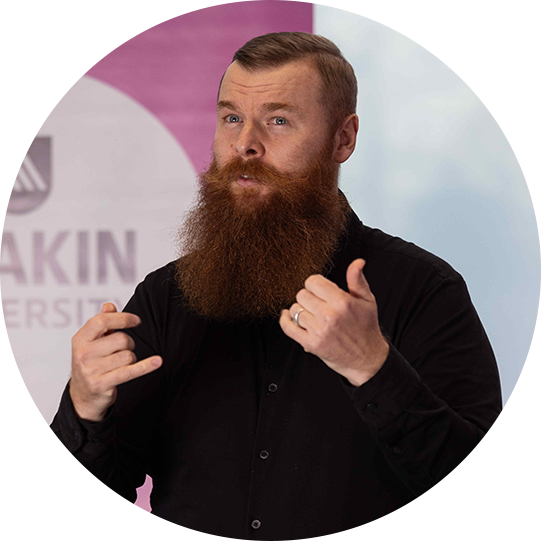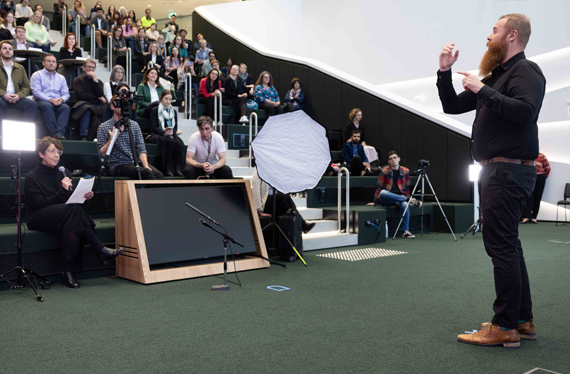Tell us about your PhD project.
My research project aims to investigate the relationship between childhood access to sign language and the mental health outcomes of deaf adults.
What inspired you to do a PhD?
I’m deaf and grew up in Lithuania, and attended a school in which all the other students were deaf.
One of my classmates was a maths protégé, and upon leaving school, he won a scholarship to attend a prestigious university. That was the first time this had happened in my country for a deaf student.
He had everything to live for, but shortly after starting university, he committed suicide. This played on my mind for a number of years, and I was reminded again more recently as a certified deaf interpreter, brokering language between deaf clients and ‘hearing’ Auslan (Australian Sign Language) interpreters and medical professionals in hospitals and mental health settings.
These experiences caused me to reflect on the communication barriers and the associated consequences of language and information deprivation that many in the Deaf community experience.
How is your PhD research making an impact?
As a deaf person and professional working with the Deaf community, I have the advantage of lived experience and being a member of the target group whom I’m researching. Although I’m only part way through my PhD research, it’s already making an impact with significant engagement and interest from the Deaf community and broader conversations happening about the topic.
There’s a critical gap in the literature in this space. I’m hoping the results of my research will inform policy and practice for improving early life access to communication among deaf children, and will therefore ultimately contribute to the prevention of adverse mental health outcomes in the deaf community.
I’ll disseminate my findings through publications, conferences and media outreach. In addition, recommendations will be made to relevant stakeholders such as government, mental health agencies and deaf-related service providers. The findings will also be conveyed to the Deaf community at the conclusion of my research.
Where do you hope your PhD will take you in the future?
I’m hoping my PhD will provide a platform to work towards reshaping the mental health system to better serve the needs of deaf and hard-of-hearing individuals.
This may involve me working within the system or collaborating with healthcare institutions, policymakers and mental health professionals to develop inclusive and accessible mental health services.
I hope this leads to outcomes of improved access by deaf people to mental health support, reduced suicide rates, and overall better wellbeing enjoyed.
Three words to describe your PhD research?
Discover, change, empower!
What’s the best part about studying at Deakin?
The best part about studying here, especially as a Deaf student, is the exceptional support provided by the Disability Resource Centre and the valuable networking opportunities within the Institute for Health Transformation (IHT):
- Supportive Environment: Deakin has demonstrated its commitment to inclusion and an accessible learning environment through the provision of sign language interpreters and captioning. I don’t expect any advantage relative to other students, simply to level the playing field by being able to study and achieve in a similar manner to anyone else.
- IHT: Deakin's Institute for Health Transformation offers a unique opportunity to connect with experts and other researchers in the health field. This network provides valuable insights, research opportunities and professional development, enhancing my academic experience.
What made you decide to participate in the 3MT program?
I decided to participate in the Three Minute Thesis (3MT®) program on a whim, it was a last-minute decision. I thought, ‘why not give it a try?’ My primary motivation was to potentially secure some funding that I could use to compensate participants in my research studies for their time and contributions.
The 3MT program is an excellent opportunity to condense and communicate complex research ideas into a concise and engaging format. While my initial motivation was financial, I also saw it as a chance to hone my communication skills, refine my ability to convey research concepts clearly and succinctly and share the significance of my work with a broader audience.


